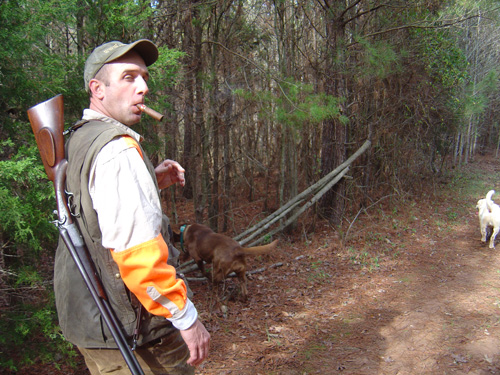In a tragic but often repeated story, a local surf caster drowned yesterday evening in Gulf Shores, Alabama. Leonard Joseph Ronan, Jr., was fishing at Little Lagoon Pass when the sand gave way beneath him and he was pulled out into the Gulf of Mexico. Having fished many times at the Pass, I can attest to the treacherous current there. On a strong outgoing tide, the sand shifts so quickly that there seems to be no bottom. I did not know Mr. Ronan, but as a lawyer in my office said when insisting that we attend the funeral of a fellow attorney who had passed away, “He was a brother.”
I am reminded of words written by William Humphrey in his essay “On Great Point.” Humphrey observed:
Now, surf casters are men of stamina, rugged and adventurous, ready for anything. Theirs is not a gentle and contemplative recreation. They rise in darkness, drive distances, fish in the worst weather. Of all the many subspecies of fishermen, they take the greatest risks; in fact, they are downright reckless, even foolhardy. Numbers of them, breasting the breakers, invading the surf, seeking to extend their cast a few feet to reach a school of feeding fish, are swept to sea and lost each year, leaving widows and orphans to mourn them.
God’s peace be with you, brother Ronan, and also with your loved ones.
Tags: Saltwater Fishing · Surfcasting
“He who makes a beast of himself gets rid of the pain of being a man.”
- Dr. Samuel Johnson, Johnsonian Miscellanies
Tags: Words of Wisdom
April 12th, 2008 · 1 Comment

My friend Raimey is what you might call a traditionalist. He drinks vintage port and he smokes cigars from a small island nation in the Caribbean. Here in Alabama, he lives a lifestyle that would befit the gamekeeper of an English shooting preserve around the turn of the century. The last century, that is, when sportsmen were just making the switch from black to smokeless powder. Raimey hunts upland birds in the season, and he works his dogs and shoots pigeons, grackles, or pen-raised birds several days a week during the off season. Like his port, many of his shotguns are vintage, and he has a penchant for repairing and shooting Damascus-barreled hammer doubles for which he purchases specialty ammunition of the correct length and loaded to the appropriate chamber pressure. There is always a collection of arcane and unidentifiable parts scattered around his den, and the whole place smells vaguely of solvent, oil, and leather.
When I was younger, I was like many sportsmen obsessed with the latest and greatest. I had to have the newest, hottest rifle caliber, and I lusted after all the high-tech gear that was just becoming available in the 1980s. Rod and gun magazines promote this view, of course, because they are driven by advertising revenue. Over the intervening years, through my own experience and my association with people like Raimey, my views have begun to change. Reading Elmer Keith and Col. Townsend Whelen, I gradually came to realize that in spite of his unquestionable contribution to the field, Roy Weatherby did not invent rifle ballistics. I killed my first deer with the much-derided .30-30 Winchester, and it fell dead as a hammer. Judging strictly by the quantity of ammunition available at local retailers, rumors of the .30-30′s demise have been greatly exaggerated. The .30-06 continues to be one of the most popular rifle calibers available for the simple reason that it works as well as it did in 1906. It’s plenty of gun for deer-sized game, and Papa Hemingway liked the 220 grain bullet for elephants.
There’s nothing wrong with innovation, but we seem to be obsessed with reinventing the wheel. Why expend countless research and development dollars introducing rifle cartridges that essentially duplicate the performance of old standards like the .375 H&H Magnum? The short answer is because enough of us will buy them to make a good return on the investment. This is not entirely a bad thing. Sometimes a new concept like Hornady’s LEVERevolution ammunition can breathe new life back into our timeless classics. Raimey’s vintage double guns would be difficult to use if not for low pressure offerings from RST, Polywad, and a handful of other manufacturers. Profit motive is not inherently evil, in spite of what some politicos would like us to believe.
So where does that leave us? My Papaw tells a story about a time he and his daddy were out plowing a field in Texas. It was hot, and they’d been working all day. When they returned to the truck, they found that the glass bottle inside their thermos was broken. The water was full of glass. Paw John, my great-granddad’s advice? “Drink from the top, son. Leave the bottom.” As sportsmen, that is what we should strive to do. Whether a firearm or cartridge was introduced 100 years ago or at last year’s SHOT show, we should take the best of the old and the new. That goes for fishing as well, where new products seem to hit the shelves at 15 minute intervals. Now where is my graphite fly rod with the deer hair popping bug?
Tags: Random Musings

